#cloud devops services
Explore tagged Tumblr posts
Text
Explore the power of Cloud DevOps Services to streamline operations, enhance agility, and accelerate software delivery. Learn how integrating cloud computing and DevOps practices, especially through Microsoft Azure, enables businesses to optimize workflows, improve scalability, and ensure seamless, secure software deployment.
#Cloud DevOps Services#DevOps Cloud as a Platform#DevOps Providers#DevOps on Cloud Services#DevOps Cloud Services
0 notes
Text
#custom app development#cloud devops services#web app development#mobile app development#web application development#cloud development#app development
0 notes
Text

Key Facts About Cloud Application Development
Cloud application development has revolutionized how businesses design, deploy, and manage software solutions. By leveraging cloud computing, organizations can access scalable, cost-effective, and flexible resources that drive innovation and efficiency. The shift to cloud-based applications offers numerous benefits, including enhanced accessibility, automatic updates, and robust security. As companies increasingly adopt cloud technologies, understanding these key aspects becomes essential for maximizing the potential of cloud application development and staying competitive in the digital landscape.
Scalability and Elasticity: Cloud applications can automatically adjust resources based on demand. This means they can handle spikes in traffic by scaling up resources and scaling down during quieter periods, ensuring efficient performance and cost management.
Cost Efficiency: Cloud development reduces the need for significant upfront capital investment in hardware. Instead, companies pay for the resources they use, which can lead to lower overall costs and a more predictable budget.
Accessibility: Cloud applications are accessible from anywhere with an internet connection, enabling remote work and global collaboration. This flexibility allows users to interact with applications using various devices and locations.
Automatic Updates: Cloud providers handle software updates and maintenance, ensuring applications are always running the latest features and security patches without user intervention. This reduces the burden on IT teams and minimizes security risks.
Disaster Recovery: Cloud platforms offer built-in backup and disaster recovery solutions. Data and applications are automatically backed up and can be quickly restored in case of data loss or system failures, ensuring business continuity.
Flexibility and Customization: Cloud services provide a wide range of tools and resources, allowing developers to build and customize applications to meet specific business needs. This includes access to databases, analytics, machine learning, and more.
Enhanced Security: Leading cloud providers invest heavily in security measures, including encryption, identity management, and regular security assessments. They also comply with industry standards and regulations, ensuring data protection and privacy.
Global Performance: Cloud providers have a network of data centres worldwide. This global infrastructure helps improve application performance by reducing latency and load times, delivering a better user experience.
Seamless Integration: Cloud applications can easily integrate with other cloud services and on-premises systems. This allows for smooth data flow and interoperability between different applications and platforms.
Innovation and Advanced Technologies: Cloud platforms offer access to cutting-edge technologies such as artificial intelligence, big data analytics, and the Internet of Things (IoT). This enables businesses to innovate and develop sophisticated applications with advanced capabilities.
These facts highlight the significant advantages and capabilities of cloud application development, emphasizing why it is a popular choice for modern software solutions.
#cloud computing#cloud application development#cloud app development#application development#android app development#ios app development#web app development#software development#custom app development#game development#cloud devops services
0 notes
Text
What Challenges Do DevOps Consulting Firms Overcome with the Help of AWS DevOps Services?
Amidst the age of technological advancements, businesses look towards DevOps consulting firms to aid them in adapting and prospering. These firms serve as a guiding light for enterprises seeking to streamline their development and operations processes, promoting productivity and flexibility. In this pursuit, they encounter numerous challenges that can impede progress. Fortunately, AWS DevOps services offer a lifeline to overcome these hurdles and steer businesses towards success. As we delve into DevOps consulting, we will explore their challenges and the solutions AWS DevOps services provide.
The Landscape of DevOps Consulting
DevOps consulting firms like Flentas, an AWS consulting partner offering AWS DevOps services, are instrumental in driving innovation. Companies can deliver software faster and more reliably by bridging the gap between development and operations teams. However, their journey has its share of challenges.
Challenge 1: Cultural Transformation
One of the foremost challenges facing DevOps consulting firms is the need for cultural transformation within client organizations. Many enterprises operate in silos, with development and operations teams often at odds. Convincing these teams to embrace collaboration and transparency can be a daunting task.
AWS DevOps services assist consulting firms by promoting a culture of automation and collaboration. Tools like AWS CodePipeline and AWS CodeBuild automate various stages of the software delivery process, reducing manual interventions and fostering a culture of efficiency. This cultural shift towards automation and collaboration is essential for the success of DevOps initiatives.
Challenge 2: Toolchain Complexity
Another challenge that DevOps consulting firms grapple with is the complexity of the DevOps toolchain. Identifying and integrating the right set of tools and integrating them seamlessly is arduous. Clients often need help choosing from a vast array of available tools.
AWS DevOps services simplify this challenge by offering a comprehensive suite of tools tightly integrated with the AWS ecosystem. These include AWS CodeDeploy for deployment automation, AWS Elastic Beanstalk for easy application deployment, and AWS CloudFormation for infrastructure as code. The unified nature of these tools reduces complexity and accelerates the adoption of DevOps practices.
Challenge 3: Scalability and Elasticity
Scalability is a recurring challenge in the world of DevOps consulting. Clients must ensure their infrastructure can scale rapidly to accommodate increased workloads during peak times. However, achieving this while maintaining cost efficiency can take time and effort.
AWS DevOps services, such as AWS Elastic Beanstalk and AWS Auto Scaling, provide consulting firms with the means to design scalable and elastic architectures. These services automatically adjust the compute capacity based on traffic, ensuring optimal performance without overprovisioning resources. This scalability is essential for businesses in dynamic markets where demand can fluctuate dramatically.
Challenge 4: Security and Compliance
Security and compliance are paramount concerns for DevOps consulting firms and their clients. Implementing rigorous security practices and ensuring compliance with industry regulations is a complex and ongoing process.
AWS DevOps services come equipped with robust security features. One way to manage user access and monitor compliance on AWS is through the use of AWS Config and AWS CloudTrail. These tools allow for precise control and auditing of user activity. These services enable DevOps consulting firms to build secure and compliant infrastructures for their clients, giving them peace of mind in an increasingly regulated landscape.
Challenge 5: Continuous Monitoring and Optimization
DevOps consulting firms must ensure that the systems they build and manage for clients remain efficient and cost-effective over time. Continuous monitoring and optimization are essential to achieving this goal but can be resource-intensive.
AWS DevOps services provide firms with a suite of monitoring and optimization tools. Amazon CloudWatch allows for real-time monitoring of AWS resources, while AWS Trusted Advisor provides cost optimization recommendations. These tools enable DevOps consulting firms to proactively manage and fine-tune their clients' environments, ensuring they operate efficiently.
Conclusion
In the challenging landscape of DevOps consulting, where transformational change is the objective, AWS DevOps services stand as a reliable partner. They empower firms like Flentas, an AWS consulting partner, to effectively address cultural, technical, and operational challenges. With AWS DevOps services, consulting firms can navigate cultural transformations, simplify toolchains, achieve scalability, enhance security and compliance, and maintain continuous monitoring and optimization.
As DevOps consulting firms continue to play a crucial role in the digital evolution of enterprises, the collaboration with AWS DevOps services becomes increasingly invaluable. By embracing these services, consulting firms can overcome challenges and propel their clients towards a future where agility, efficiency, and innovation are the cornerstones of success.
For more details about our services please visit our website – Flentas Services
0 notes
Text
Key Benefits of Using Cloud App Development Services for Startups

Discover how #cloudappdevelopmentservices provide startups with cost efficiency, scalability, enhanced security, and access to advanced technologies for growth.
#cloud devops integration#cloud app development#cloud solutions#cloud technology#cloud devops services#technology#Cloudservicesforstartups
0 notes
Text

Cloud technology revolutionizes infrastructure scalability and accessibility, while DevOps streamlines software development, ensuring faster delivery and enhanced collaboration.
#clouddevopsservices#cloudDevopsSolutions#cloudautomation#CloudDevops#cloudmigrationservices
#cloud devops services#cloud automation#cloud devops solutions#cloud migration services#technology#systimanx solutions
0 notes
Text
Hire Cloud Developers: Web, Mobile & API Experts | Connect Infosoft
Hire Cloud Developers offers expert services in web, mobile, and API development, specializing in cloud technologies. Our team builds scalable, secure, and high-performance applications using AWS, Azure, and Google Cloud. Partner with us for innovative cloud solutions.
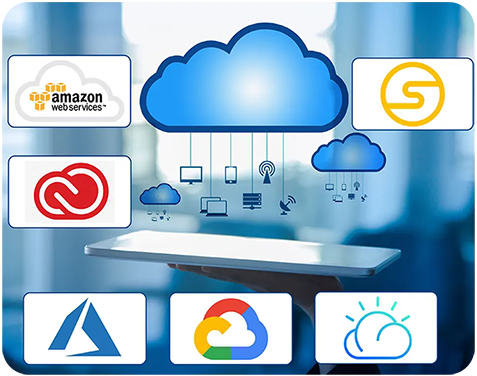
#Cloud Computing Development Services#Cloud Computing Development#Cloud Computing Service#Hire Cloud Computing Developer#Cloud application development#Cloud migration services#Cloud-native development#Cloud infrastructure management#Cloud DevOps services#Cloud security services#Cloud cost optimization
0 notes
Text
#devops consulting companies#devops professional services#cloud devops services#devops service providers#devops consulting services
0 notes
Text
Secure and Scalable Cloud Server Management at Atcuality
For businesses seeking to enhance scalability and maintain top-tier security, Atcuality provides unparalleled cloud server management services. Our solutions cover all aspects of cloud server maintenance, including load balancing, patch management, data backups, and disaster recovery planning. Our experienced professionals work with cutting-edge tools to ensure that your servers are secure, efficient, and scalable to meet changing business needs. Whether you operate in e-commerce, finance, or technology, we tailor our services to align with your operational goals. With Atcuality as your trusted partner, you can focus on driving growth while we handle the technical complexities of cloud management.
#seo marketing#seo services#artificial intelligence#azure cloud services#seo agency#digital marketing#seo company#iot applications#ai powered application#amazon web services#ai applications#virtual reality#augmented reality agency#augmented human c4 621#augmented and virtual reality market#augmented intelligence#augmented reality#cloud security services#cloud computing#cloud services#cloud service provider#cloud server hosting#software#devops#information technology#cash collection application#task management#blockchain#web developing company#web development
2 notes
·
View notes
Text
Uncover the power of AWS with our carousel of key findings! Dive into essential AWS statistics and unlock insights you didn't know you needed.



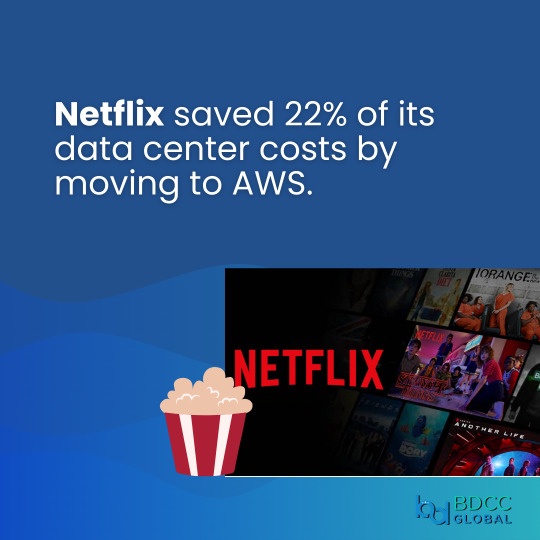
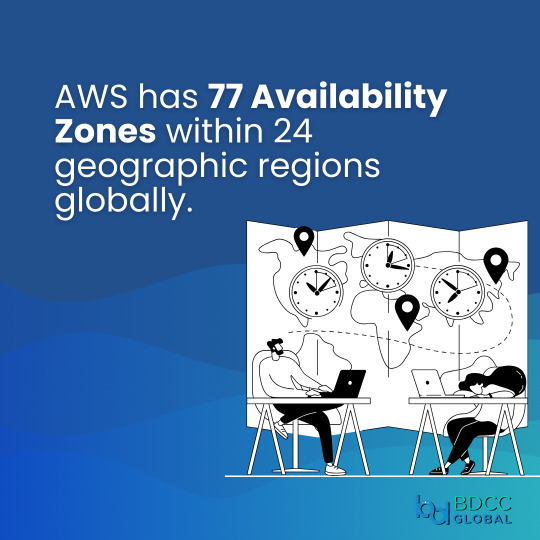
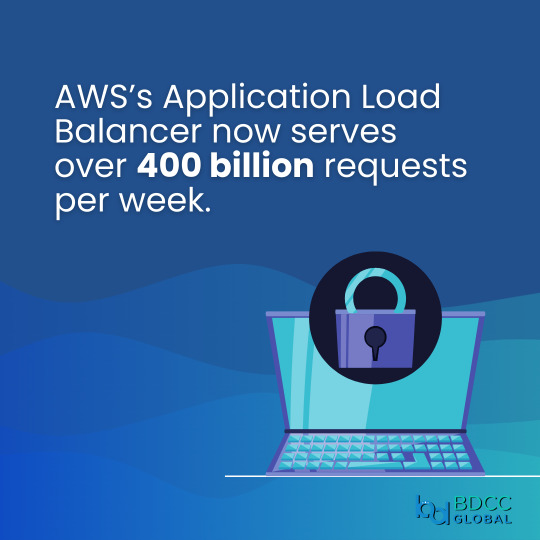
4 notes
·
View notes
Text
Explore the world of DevOps Cloud Services in this episode, where we showcase Impressico Business Solutions. Learn how their expertise helps businesses optimize cloud infrastructure, improve efficiency, and scale operations seamlessly. Tune in to discover how adopting DevOps can drive your digital transformation and accelerate growth with powerful cloud solutions.
#DevOps Cloud Services#DevOpsCloudServices#Cloud Consulting Company#Cloud DevOps Services#DevOps Cloud as a Platform
0 notes
Text
Journey to Devops
The concept of “DevOps” has been gaining traction in the IT sector for a couple of years. It involves promoting teamwork and interaction, between software developers and IT operations groups to enhance the speed and reliability of software delivery. This strategy has become widely accepted as companies strive to provide software to meet customer needs and maintain an edge, in the industry. In this article we will explore the elements of becoming a DevOps Engineer.
Step 1: Get familiar with the basics of Software Development and IT Operations:
In order to pursue a career as a DevOps Engineer it is crucial to possess a grasp of software development and IT operations. Familiarity with programming languages like Python, Java, Ruby or PHP is essential. Additionally, having knowledge about operating systems, databases and networking is vital.
Step 2: Learn the principles of DevOps:
It is crucial to comprehend and apply the principles of DevOps. Automation, continuous integration, continuous deployment and continuous monitoring are aspects that need to be understood and implemented. It is vital to learn how these principles function and how to carry them out efficiently.
Step 3: Familiarize yourself with the DevOps toolchain:
Git: Git, a distributed version control system is extensively utilized by DevOps teams, for code repository management. It aids in monitoring code alterations facilitating collaboration, among team members and preserving a record of modifications made to the codebase.
Ansible: Ansible is an open source tool used for managing configurations deploying applications and automating tasks. It simplifies infrastructure management. Saves time when performing tasks.
Docker: Docker, on the other hand is a platform for containerization that allows DevOps engineers to bundle applications and dependencies into containers. This ensures consistency and compatibility across environments from development, to production.
Kubernetes: Kubernetes is an open-source container orchestration platform that helps manage and scale containers. It helps automate the deployment, scaling, and management of applications and micro-services.
Jenkins: Jenkins is an open-source automation server that helps automate the process of building, testing, and deploying software. It helps to automate repetitive tasks and improve the speed and efficiency of the software delivery process.
Nagios: Nagios is an open-source monitoring tool that helps us monitor the health and performance of our IT infrastructure. It also helps us to identify and resolve issues in real-time and ensure the high availability and reliability of IT systems as well.
Terraform: Terraform is an infrastructure as code (IAC) tool that helps manage and provision IT infrastructure. It helps us automate the process of provisioning and configuring IT resources and ensures consistency between development and production environments.
Step 4: Gain practical experience:
The best way to gain practical experience is by working on real projects and bootcamps. You can start by contributing to open-source projects or participating in coding challenges and hackathons. You can also attend workshops and online courses to improve your skills.
Step 5: Get certified:
Getting certified in DevOps can help you stand out from the crowd and showcase your expertise to various people. Some of the most popular certifications are:
Certified Kubernetes Administrator (CKA)
AWS Certified DevOps Engineer
Microsoft Certified: Azure DevOps Engineer Expert
AWS Certified Cloud Practitioner
Step 6: Build a strong professional network:
Networking is one of the most important parts of becoming a DevOps Engineer. You can join online communities, attend conferences, join webinars and connect with other professionals in the field. This will help you stay up-to-date with the latest developments and also help you find job opportunities and success.
Conclusion:
You can start your journey towards a successful career in DevOps. The most important thing is to be passionate about your work and continuously learn and improve your skills. With the right skills, experience, and network, you can achieve great success in this field and earn valuable experience.
2 notes
·
View notes
Text

CodeStore is a trusted cloud app development company in India, specializing in building secure, flexible, and scalable cloud-based applications.
0 notes
Text
Azure’s Evolution: What Every IT Pro Should Know About Microsoft’s Cloud
IT professionals need to keep ahead of the curve in the ever changing world of technology today. The cloud has become an integral part of modern IT infrastructure, and one of the leading players in this domain is Microsoft Azure. Azure’s evolution over the years has been nothing short of remarkable, making it essential for IT pros to understand its journey and keep pace with its innovations. In this blog, we’ll take you on a journey through Azure’s transformation, exploring its history, service portfolio, global reach, security measures, and much more. By the end of this article, you’ll have a comprehensive understanding of what every IT pro should know about Microsoft’s cloud platform.
Historical Overview
Azure’s Humble Beginnings
Microsoft Azure was officially launched in February 2010 as “Windows Azure.” It began as a platform-as-a-service (PaaS) offering primarily focused on providing Windows-based cloud services.
The Azure Branding Shift
In 2014, Microsoft rebranded Windows Azure to Microsoft Azure to reflect its broader support for various operating systems, programming languages, and frameworks. This rebranding marked a significant shift in Azure’s identity and capabilities.
Key Milestones
Over the years, Azure has achieved numerous milestones, including the introduction of Azure Virtual Machines, Azure App Service, and the Azure Marketplace. These milestones have expanded its capabilities and made it a go-to choice for businesses of all sizes.
Expanding Service Portfolio
Azure’s service portfolio has grown exponentially since its inception. Today, it offers a vast array of services catering to diverse needs:
Compute Services: Azure provides a range of options, from virtual machines (VMs) to serverless computing with Azure Functions.
Data Services: Azure offers data storage solutions like Azure SQL Database, Cosmos DB, and Azure Data Lake Storage.
AI and Machine Learning: With Azure Machine Learning and Cognitive Services, IT pros can harness the power of AI for their applications.
IoT Solutions: Azure IoT Hub and IoT Central simplify the development and management of IoT solutions.
Azure Regions and Global Reach
Azure boasts an extensive network of data centers spread across the globe. This global presence offers several advantages:
Scalability: IT pros can easily scale their applications by deploying resources in multiple regions.
Redundancy: Azure’s global datacenter presence ensures high availability and data redundancy.
Data Sovereignty: Choosing the right Azure region is crucial for data compliance and sovereignty.
Integration and Hybrid Solutions
Azure’s integration capabilities are a boon for businesses with hybrid cloud needs. Azure Arc, for instance, allows you to manage on-premises, multi-cloud, and edge environments through a unified interface. Azure’s compatibility with other cloud providers simplifies multi-cloud management.
Security and Compliance
Azure has made significant strides in security and compliance. It offers features like Azure Security Center, Azure Active Directory, and extensive compliance certifications. IT pros can leverage these tools to meet stringent security and regulatory requirements.
Azure Marketplace and Third-Party Offerings
Azure Marketplace is a treasure trove of third-party solutions that complement Azure services. IT pros can explore a wide range of offerings, from monitoring tools to cybersecurity solutions, to enhance their Azure deployments.
Azure DevOps and Automation
Automation is key to efficiently managing Azure resources. Azure DevOps services and tools facilitate continuous integration and continuous delivery (CI/CD), ensuring faster and more reliable application deployments.
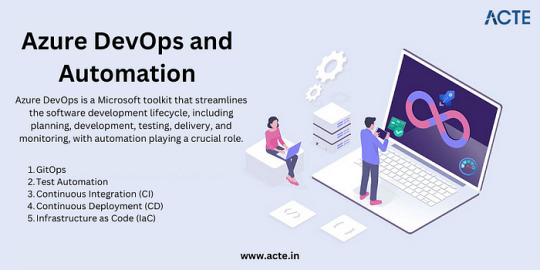
Monitoring and Management
Azure offers robust monitoring and management tools to help IT pros optimize resource usage, troubleshoot issues, and gain insights into their Azure deployments. Best practices for resource management can help reduce costs and improve performance.
Future Trends and Innovations
As the technology landscape continues to evolve, Azure remains at the forefront of innovation. Keep an eye on trends like edge computing and quantum computing, as Azure is likely to play a significant role in these domains.
Training and Certification
To excel in your IT career, consider pursuing Azure certifications. ACTE Institute offers a range of certifications, such as the Microsoft Azure course to validate your expertise in Azure technologies.

In conclusion, Azure’s evolution is a testament to Microsoft’s commitment to cloud innovation. As an IT professional, understanding Azure’s history, service offerings, global reach, security measures, and future trends is paramount. Azure’s versatility and comprehensive toolset make it a top choice for organizations worldwide. By staying informed and adapting to Azure’s evolving landscape, IT pros can remain at the forefront of cloud technology, delivering value to their organizations and clients in an ever-changing digital world. Embrace Azure’s evolution, and empower yourself for a successful future in the cloud.
#microsoft azure#tech#education#cloud services#azure devops#information technology#automation#innovation
2 notes
·
View notes
Text
How Can AWS DevOps Services and Consulting Revolutionize Your Cloud Strategy
In the dynamic realm of cloud computing, staying ahead of the curve is imperative for businesses striving to succeed in the digital age. As organizations move to the cloud, efficient management, rapid deployment, and seamless integration are essential. This is where AWS DevOps services and consulting step onto the stage, offering a transformative approach that propels cloud strategies to new heights of agility, scalability, and innovation.
Discover AWS DevOps Services and Consulting
To stay ahead in the rapidly evolving technological landscape. This is where the synergy between cloud computing and DevOps practices comes into play. DevOps, a methodology that fosters collaboration between development and operations teams to automate and streamline software delivery, aligns perfectly with the capabilities of Amazon Web Services (AWS).
Flentas, an established AWS consulting partner and a provider of AWS DevOps services, stands out as a pioneering guide in this transformative journey. Through their expertise, businesses can harness the full potential of AWS DevOps tools and practices to achieve operational excellence. By integrating development, testing, and deployment, Flentas paves the way for accelerated software delivery cycles, reduced downtime, and enhanced customer experiences.
The AWS DevOps Advantage
One of the core tenets of AWS DevOps services lies in automation. Automation minimizes the risk of human error, increases efficiency, and allows teams to focus on strategic tasks rather than mundane, repetitive processes. By orchestrating this intricate symphony of automation within AWS, businesses can leverage services like AWS Code Pipeline, AWS Code Build, and AWS Lambda to build robust pipelines that streamline the delivery process.
Scalability is another hallmark of both AWS and DevOps. AWS's elastic infrastructure allows businesses to scale resources up or down based on demand, optimizing costs without compromising performance. DevOps practices seamlessly integrate with this scalability, enabling companies to develop applications and services that can grow and shrink in response to user activity. This ensures consistent performance and cost efficiency.
Continuous Integration and Continuous Deployment (CI/CD)
The marriage of AWS's capabilities with DevOps practices ushers in the Continuous Integration and Continuous Deployment (CI/CD) era. CI/CD automates the building, testing, and deployment of applications, ensuring that changes are swiftly integrated into the production environment while maintaining high quality. Establishing robust CI/CD pipelines using AWS services like AWS Code Pipeline and AWS CodeDeploy reduces time-to-market, increases innovation velocity, and enhances competitiveness.
Enhancing Collaboration and Innovation
The collaboration fostered by DevOps practices aligns seamlessly with AWS's emphasis on teamwork and innovation. Cloud-native tools facilitate communication and cooperation among developers, operations, and other stakeholders, allowing businesses to respond rapidly to market shifts and customer demands. With the transformative guidance of an AWS consulting partner like Flentas, organizations can confidently navigate this landscape and harness the true potential of AWS DevOps services.
Conclusion
As companies navigate the challenges of the digital era, the importance of AWS DevOps services and consulting continues to grow. The seamless integration of DevOps methodologies with AWS's robust cloud infrastructure empowers organizations to streamline their operations, accelerate innovation, and remain agile in the face of ever-changing market dynamics. Flentas, as an AWS consulting partner, stands ready to guide businesses through this transformative journey, unlocking the full potential of AWS DevOps services and revolutionizing their cloud strategies for sustained success.
For more details about our services, please visit our website – Flentas Technologies
0 notes
Text
Seamless Integration: Leveraging Cloud and DevOps Services Today
Optimize development & deployment with seamless #cloudDevOpsintegration. Enhance efficiency & innovation in today’s digital landscape.
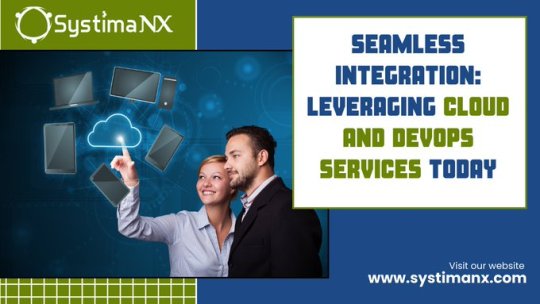
0 notes